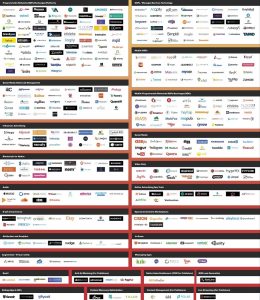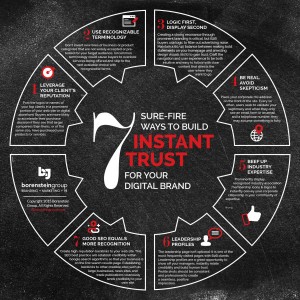So you’ve landed a slick new digital marketing job. Congratulations! Now it’s time to inform your employer and start transitioning out of your current role. Just make sure to do it the right way, so you stay on good terms with the organization and the people there.
Though it’s a normal part of life, leaving a job can often be a surprisingly sensitive subject. What you consider to be a “just business” career matter could be taken more personally than you realize. Once you have the next step in your career lined up through marketing placement agencies, it’s wise to make an effort to depart on the best terms possible.
Keeping your social and professional bridges intact is beneficial for many reasons:
- Your reputation gets around–and it matters. Marketing folks love to talk. Oftentimes, about each other. Your behavior, good or bad, in leaving a job can certainly get around and reflect on your personal brand. If you develop a reputation of ditching businesses on bad terms, future prospective employers could very well hear about it and avoid inviting you to join their business.
- Future references. In marketing, first impressions are usually the most important. But for professional relationships, it’s often the last impression that matters most. The further you go in your career, the more important your references will be–and rest assured any good digital marketing recruitment agencies will be checking them. The way your managers and peers perceive you on your way out the door is the way they’ll remember you in the future. And it’s that impression they’ll be most likely to share in the future when called for personal references. Make sure they only have good things to say!
- You never know where your career will take you. Many career paths include a loop where a professional returns to a previous employer for a higher position. It makes sense–you already have a good understanding of the business model, the market, and the culture. Once you leave to get some new experience and skills, you’re well-equipped to return and take in a new role with more responsibility. But you’ll never be welcomed back if you leave on bad terms.
Even if you don’t particularly care for the job or the company, in most cases it’s still wise to try to leave on the best possible terms. There’s little benefit to fostering bad blood or animosity. Instead, put yourself in the best position to leave that role in the past and move forward with your career.
The Most Important Steps Digital Marketing Recruitment Agencies Recommend for Bridge Preservation

When it’s time to move to your next job, make sure to take a few steps to leave on agreeable terms and keep valuable doors open.
Give a full two weeks notice, and make it count.
No matter how excited you are about your new marketing job and how desperately the new company wants you, you should always accept it with the expectation that you’ll provide your current employer with a full two weeks (10 business days) of notice, support and preparation.
Depending on how much you like your current job, you may even be tempted to offer more time. However, that’s usually unnecessary and can cause problems of its own.
With your tenure at an organization coming to an end, it can be difficult to stay motivated and productive. Your last days in a given position might not be particularly important for your immediate future. However, they can be critical in putting the employer in a position to succeed after you’re gone. Stay focused! Don’t start slacking just because you won’t be around in a few days. Provide as much help as possible. Marketers often have very specific procedures and workflows that need to be documented so that work can be passed on to a replacement or redistributed among the team.
Provide a useful, but positive, exit interview.
The exit interview is a great opportunity to express your gratitude for the experience and provide helpful feedback. However, it’s a poor place to dump all of your brutally honest opinions about every peer, process and product in the business.
If you’re directly asked about some aspect of the organization, feel free to provide an honest perspective that is backed by facts; not emotions and anecdotal evidence. And make sure it includes some realistic, actionable suggestions that could improve the situation.
Don’t go out of your way to call out everything you think is wrong with the company. The truth is, nearly every business has a few annoying coworkers or inefficient procedures. Your scathing criticism isn’t going to make them go away; it’s just going to reflect poorly on you.
Speak well of your previous employers and coworkers.
At many points throughout your career, especially during job interviews with digital marketing recruitment agencies, you might get asked how you liked your work at a previous employer or why you decided to leave. In general, you should always respond with a generally positive tone even if you were’t a fan of the job or the environment. It’s usually considered poor taste to throw a former employer under the bus, unless they were involved with blatantly immoral or illegal practices like harassment or withholding wages.
Dodge the drama on the way out.
With a definitive timer on your remaining tenure, it’s easy to fall into the mindset of “you have nothing to lose” at the workplace. That encourages some people to “speak their mind” about their coworkers in a way that they’re been previously unable to, or join conversations that they would otherwise have the tact to avoid.
Our advice is to take the high road and refrain. You might get some immediate gratification from calling out a lazy coworker or fickle boss, but that won’t do anything but dredge up drama and give you baggage that will just weigh you down going forward.
Business & Finance Articles on Business 2 Community(70)








